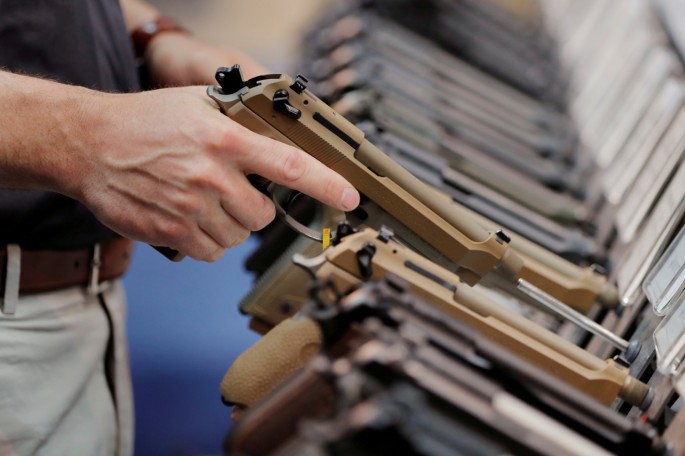A federal judge in Dallas ruled on Tuesday that the National Rifle Association cannot use bankruptcy to reorganize in gun-friendly Texas, a serious blow to the gun rights group's effort to avoid a lawsuit in New York seeking its dissolution.
U.S. Bankruptcy Judge Harlin Hale said the NRA did not file for Chapter 11 in good faith, but instead filed to avoid oversight by New York Attorney General Letitia James and gain an "unfair litigation advantage" over her.
James sued to shut down the NRA in August, accusing it of diverting millions of dollars to fund luxuries for officials including longtime Chief Executive Wayne LaPierre, no-show contracts for associates and other questionable expenses.
Closely aligned with Republicans including former President Donald Trump, the NRA has long been instrumental in thwarting Democratic-backed gun control measures in the U.S. Congress.
Ruling after a 12-day trial that ended on May 3, Hale said some details that came out about the NRA were "cringeworthy."
He singled out LaPierre for criticism, including the "surreptitious manner" he used to obtain sole authority to put the NRA into bankruptcy in January.
"Excluding so many people from the process of deciding to file for bankruptcy, including the vast majority of the board of directors, the chief financial officer and the general counsel, is nothing less than shocking," Hale wrote.
"The question the court is faced with is whether the existential threat facing the NRA is the type of threat that the Bankruptcy Code is meant to protect against," Hale added. "The court believes it is not."
In a statement, LaPierre acknowledged defeat and appeared resigned to defending against James' lawsuit.
"We remain an independent organization that can chart its own course, even as we remain in New York to confront our adversaries," he said. "The NRA will keep fighting, as we've done for 150 years."
LaPierre and the NRA have denied wrongdoing.
James welcomed Hale's decision. "The rot runs deep, which is why we will now refocus on and continue our case in New York court," she said. "No one is above the law, not even one of the most powerful lobbying organizations in the country."
Hale's dismissal is without prejudice, meaning the NRA can file for bankruptcy again, but the judge said management issues could require appointing a trustee to oversee its affairs if it sought Chapter 11 again.
'DIRTY LAUNDRY'
The NRA hoped to use Chapter 11 to reincorporate in Republican-dominated Texas and escape what it called a corrupt political and regulatory environment in New York, where it was founded in 1871.
LaPierre testified that he feared James would try to put the NRA into receivership.
He said that made bankruptcy preferable, though the group could fully pay its debts if the Chapter 11 case were dismissed.
Internal upheaval has also plagued the NRA in recent years, including an effort to oust LaPierre over alleged mismanagement.
"The NRA was forced to hang its dirty laundry out for the world to see," said John Feinblatt, president of Everytown for Gun Safety, which supports stricter gun control laws. "Their loss is a huge gain for the gun safety movement."
President Joe Biden's administration opposed the bankruptcy, with the Department of Justice's bankruptcy watchdog, the U.S. Trustee, urging its dismissal.
Biden has called gun violence "a national embarrassment" following a spate of mass shootings, and called for Congress to ban military-style assault weapons and large-capacity magazines.
The NRA is separately backing a challenge to a New York law restricting the carrying of concealed handguns outside the home.
Last month, the U.S. Supreme Court agreed to review that law, potentially leading to its first major decision in more than a decade on the right to bear arms under the U.S. Constitution's Second Amendment.



























